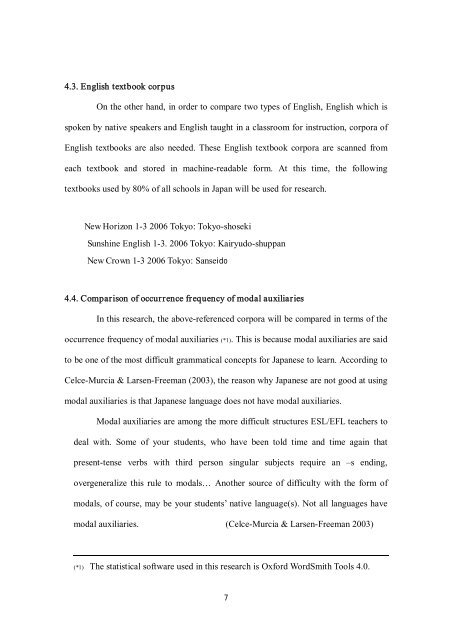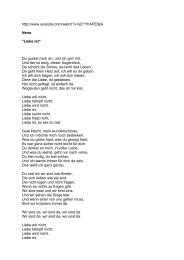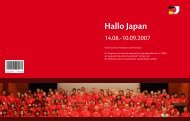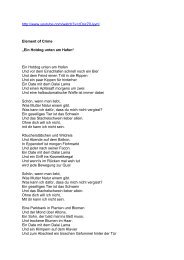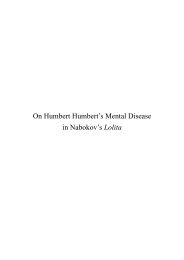What is the Problem of English Education Japan?: Presenting a ...
What is the Problem of English Education Japan?: Presenting a ...
What is the Problem of English Education Japan?: Presenting a ...
You also want an ePaper? Increase the reach of your titles
YUMPU automatically turns print PDFs into web optimized ePapers that Google loves.
4.3. Engl<strong>is</strong>h textbook corpus<br />
On <strong>the</strong> o<strong>the</strong>r hand, in order to compare two types <strong>of</strong> Engl<strong>is</strong>h, Engl<strong>is</strong>h which <strong>is</strong><br />
spoken by native speakers and Engl<strong>is</strong>h taught in a classroom for instruction, corpora <strong>of</strong><br />
Engl<strong>is</strong>h textbooks are also needed. These Engl<strong>is</strong>h textbook corpora are scanned from<br />
each textbook and stored in machine-readable form. At th<strong>is</strong> time, <strong>the</strong> following<br />
textbooks used by 80% <strong>of</strong> all schools in <strong>Japan</strong> will be used for research.<br />
New Horizon 1-3 2006 Tokyo: Tokyo-shoseki<br />
Sunshine Engl<strong>is</strong>h 1-3. 2006 Tokyo: Kairyudo-shuppan<br />
New Crown 1-3 2006 Tokyo: Sanseido<br />
4.4. Compar<strong>is</strong>on <strong>of</strong> occurrence frequency <strong>of</strong> modal auxiliaries<br />
In th<strong>is</strong> research, <strong>the</strong> above-referenced corpora will be compared in terms <strong>of</strong> <strong>the</strong><br />
occurrence frequency <strong>of</strong> modal auxiliaries (*1). Th<strong>is</strong> <strong>is</strong> because modal auxiliaries are said<br />
to be one <strong>of</strong> <strong>the</strong> most difficult grammatical concepts for <strong>Japan</strong>ese to learn. According to<br />
Celce-Murcia & Larsen-Freeman (2003), <strong>the</strong> reason why <strong>Japan</strong>ese are not good at using<br />
modal auxiliaries <strong>is</strong> that <strong>Japan</strong>ese language does not have modal auxiliaries.<br />
Modal auxiliaries are among <strong>the</strong> more difficult structures ESL/EFL teachers to<br />
deal with. Some <strong>of</strong> your students, who have been told time and time again that<br />
present-tense verbs with third person singular subjects require an –s ending,<br />
overgeneralize th<strong>is</strong> rule to modals… Ano<strong>the</strong>r source <strong>of</strong> difficulty with <strong>the</strong> form <strong>of</strong><br />
modals, <strong>of</strong> course, may be your students’ native language(s). Not all languages have<br />
modal auxiliaries. (Celce-Murcia & Larsen-Freeman 2003)<br />
(*1) The stat<strong>is</strong>tical s<strong>of</strong>tware used in th<strong>is</strong> research <strong>is</strong> Oxford WordSmith Tools 4.0.<br />
7


